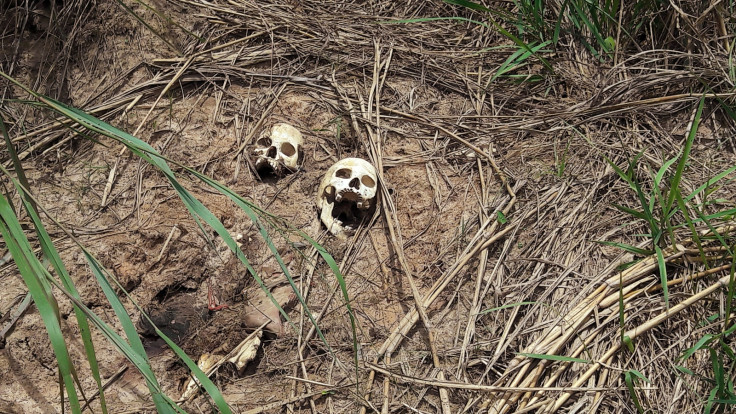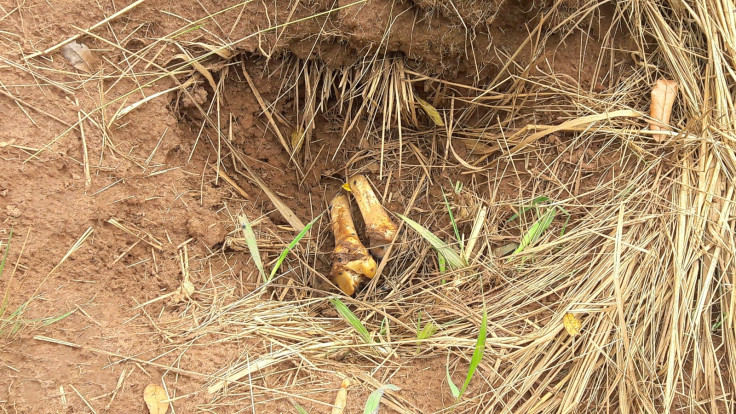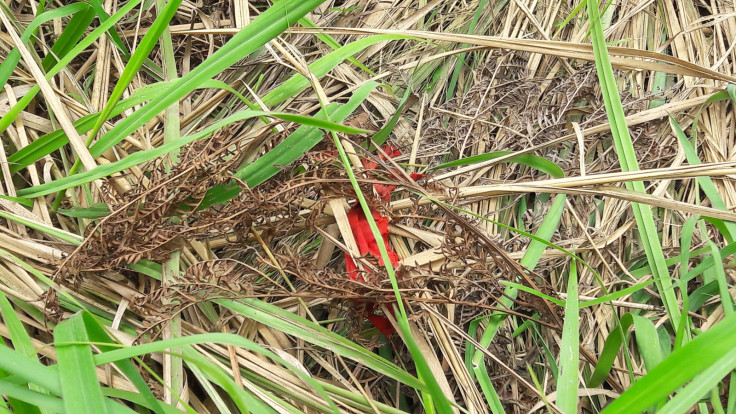Disturbing details emerge following discovery of eight mass graves in DRC's Kasaï-Central
Kasaï Central is plagued by deadly violence between the security forces and a local militia, Kamwina Nsapu.

New details have emerged following the discovery of mass graves in the Democratic Republic of Congo (DRC)'s restive Kasaï region.
Kasaï Central, in the heart of the DRC, has been plagued by deadly violence between the Congolese security forces and a local militia, Kamwina Nsapu, since August 2016.
The United Nations peacekeeping mission to DRC (Monusco) on 18 March said is concerned by the attacks of Kamwina Nsapu militiamen against State institutions and symbols, and warned of the disproportionate use of force by the security and defence forces and the targeting of civilians, including women and children.
Following the recent discovery of three mass graves, UN High Commissioner for Human Rights Zeid Ra'ad al-Hussein on 8 March called for a high-level investigation into "grave" violations committed against civilians in the region. DRC's government spokesman Lambert Mende said that a Congolese judicial investigation was under way.
According to RFI and Reuters investigations, at least eight mass graves have now been unearthed since the beginning of the year around Tshimbulu, the capital of Dibaya territory, one of the epicentres of the popular insurgency stemming a revolt from fighters seeking to avenge the death of their leader who was killed in August 2016 by the military.
A local resident from Tshimbulu, cited by RFI, described the area located a few kilometres outside of the town as "the cemetery dug by the military".
"In the morning we left the village to go to the fields. And when we came, we saw flies flying and there was a strong smell," the man, who was one of the locals who discovered a first pit of 10 meters by 5 meters (32ft by 16ft) in the middle of tall grass containing five poorly-covered bodies, said.
"We saw arms, legs and even entire corpses, they were badly buried," he said, confirming the bodies were of men, women and children.

Local residents attribute the mass graves to the "catastrophes" that have plagued they village since early January. Following an incursion of Kamwina Nsapu militiamen in the town on 3 January, peasants, who were alerted by the smell, discovered five pits on the road to the town of Kananga, the capital of Kasaï-Central. Hidden in the tall grass, the holes were about 4 meters by 3 meters.
A month later, between 9 and 13 February, the UN accused the security forces of killing at least 84 militiamen in Tshimbulu. Residents later discovered two larger pits on the same road in Tshimbulu.
"Everywhere on the road there was blood and white matter. Everyone who passed by here could see that," a local woman, said, according to RFI.
Another resident nearby said he remembered a truck that parked there the night of 12 to 13 February. "It was the soldiers who dug that. We saw their truck go by. The truck stayed here for more than two hours. It arrived from Tshimbulu around 8 pm and it left again at 11 pm," the witness said.
The next day, a group of men decided, despite their fear, to inspect the area where the truck had parked, and discovered several pits. The only indication of the contents of these pits was a red band, that symbolises militia membership.

The government, meanwhile, rejected claims the security forces are behind the mass graves, and accused the Kamwhina Nsapu of committing the crimes. Authorities describe the militiamen as terrorists because they attack symbols of the state and kill police, military, administrative officials or members of the electoral commission, CENI.
Monusco, which took pictures of the mass graves, told the news agencies it had already provided the Congolese government with information about 10 mass graves, three in Tshimbulu and seven others in Nkoto, and that it is continuing to document other sites, not restricted to Kasaï Central.
Congolese military justice discovered two mass graves in Kasai Oriental, following the release of video footage that appears to show elements of the armed forces "summarily executing civilians, including women and children", believed to be Kamwuina Nsapu members. The authorities confirmed seven military have been arrested on suspicion of committing crimes against humanity.
Violence has spread to five provinces, but the government is hoping that, following an agreement signed with the family of the late chief Kamuina Nsapu, calm will return. On 19 March, several dozens of militiamen surrendered to the authorities during a reconciliation ceremony in Kananga, organised by the authorities.
© Copyright IBTimes 2025. All rights reserved.






















